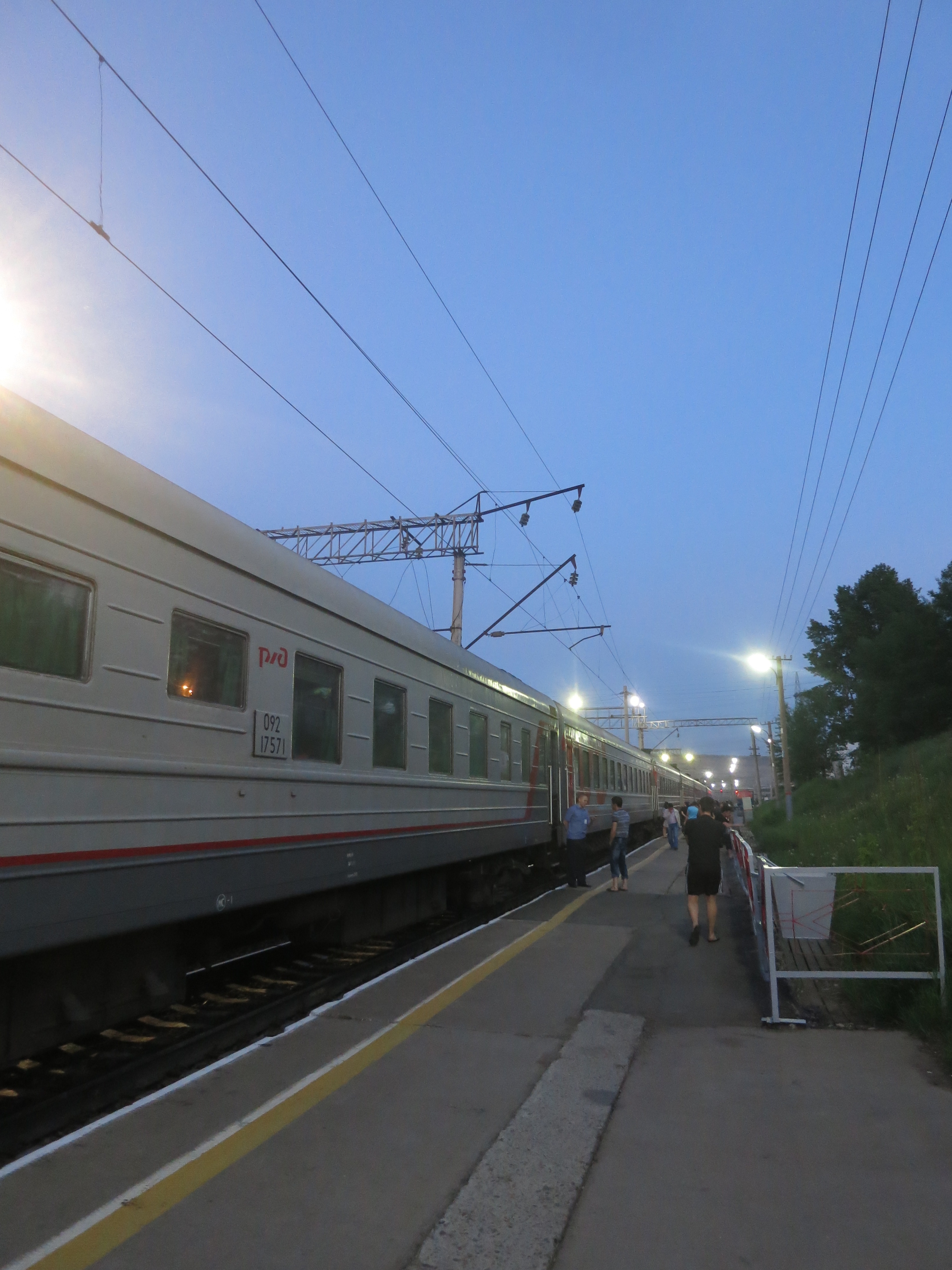 One of many stops on our various trains across the beautiful vastness of Russia
One of many stops on our various trains across the beautiful vastness of Russia
As a teenager and young adult, in the late 1980s and 1990s, I had a strong engagement with Russia – with its history, with its language, its culture and politics.
Part of this was a rejection of the cold war rhetoric dominant at the time, a belief – both correct and mistaken – that the picture painted by the leaders of “our side” must be inaccurate. But there was also an interest in a country that, like Australia, was vast, monumental, that had an existence beyond its human culture (this was long before I realised how deeply Australia is imbued, embedded with, the human culture of the complex civilisation that was here before the arrival of the British).
Realising my dream and coming to Russia, I saw the reality of the chimera; a country falling apart, an economy in collapse, the human cost of cold war defeat. Of course, in the West, this was painted as an inevitable outcome; that idiot 'historian' Fukuyama said it was the “end of history” and now the world had reached a natural and normal state of liberal-democratic equilibrium, unsullied by unnatural attempts to pervert the inevitable course of capitalism.
Meanwhile, Russia suffered, the weakened subject of naïve and brutal ideologues who projected their own fantasies of pure capitalism, a capitalism that had never existed in the real world, onto a vulnerable nation. The disastrous policies of the IMF and World Bank, which so devastated swathes of the developing world in the 1970s and 1980s, were unleashed, by the likes of Jeffrey Sachs, with predictable results. An almost completely state-run economy was rapidly privatised in a society where, although almost everyone was relatively poor, they were equally so and benefited from a very wide range of publicly provided services. So who bought the privatised public assets? - criminals, the corrupt and the unscrupulous. Large sections of the economy went into freefall, public services collapsed, corruption was rife and the famous Russia mafia yielded enormous power.
Between 1992 and 1997 I spend three years in Russia and Europe, the last trip being a year spent studying in Germany. For a complex of reasons, not at all clear to me, my interest in this part of the world faded by the late 1990s and Russia left my active consciousness, a seemingly insoluble mess, a vast continent of impoverishment, dominated by criminals and the corrupted, with a very dim outlook.
So, my understanding of the 15 years between then and now is very poor, formed mostly by superficial impressions gained from a western media that has consistently got it wrong about Russia. A few posts by Dmitry Orlov (for instance this one, a fascinating thinker (though somewhat blinded by his Russia nationalism), gave a different view. He spoke warmly of Putin's dictatorship of the law, the forceful combatting of the criminal element, public servants and a regularisation of legal and administrative structures. Along with this, though, was a brutal and unnecessary war in Chechnya, strong attacks on press freedom, the promotion of a chauvinistic nationalism and – prominent of late in the West – extremist attitudes to homosexuality.
This is all a very superficial summary and I'd welcome readers' comments!
Anyway, regardless of poorly informed musings, Russia is certainly different to what I might have expected. Average wages are about AUD$260 / week, about a quarter of Australia's, but there's a feeling of prosperity, well-being and optimism that is so utterly different from my experiences in the 1990s – as irrelevant as the opinions of a foreigner on a brief, superficial visit are, it's been very nice to see such a positive change.